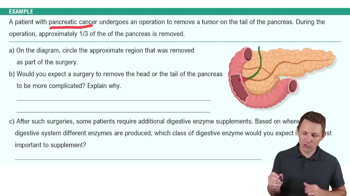Here are the essential concepts you must grasp in order to answer the question correctly.
Neuroanatomy and Spinal Cord Injury
Neuroanatomy refers to the structure and organization of the nervous system, including the brain and spinal cord. In cases of spinal cord injury, such as Tara's, the affected area can disrupt communication between the brain and the body, leading to loss of motor and sensory functions. This disruption can result in complications like paralysis, as well as secondary issues due to immobility.
Recommended video:
Parasympathetic Nervous System Example 2
Complications of Immobility
Immobility following a spinal cord injury can lead to several complications, including urinary infections, bed sores, and muscular spasms. Urinary infections often occur due to the inability to fully empty the bladder, while bed sores develop from prolonged pressure on the skin. Muscular spasms can arise from the nervous system's attempts to regain control over the affected muscles, leading to involuntary contractions.
Recommended video:
Preventive Care in Rehabilitation
Preventive care is crucial in rehabilitation for individuals with spinal cord injuries to mitigate complications. This includes regular monitoring for urinary tract infections, implementing pressure-relief strategies to prevent bed sores, and managing muscle spasms through medication or physical therapy. Educating patients and families about these preventive measures is essential for improving quality of life and promoting recovery.
Recommended video:
Law of Partial Pressure Example 1




